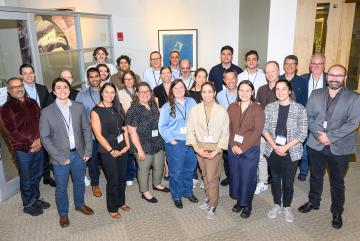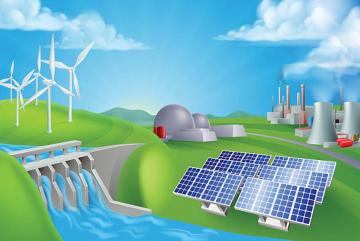
MIT News Office
|
Building reuse into the materials around us
At MIT, metallurgist Diran Apelian ScD ’73 urges engineers and researchers to rethink design, recycling, and the life cycle of modern materials.
MIT News Office
|
How cement “breathes in” and stores millions of tons of CO₂ a year
New analysis provides the first national, bottom-up estimate of cement’s natural carbon dioxide uptake across buildings and infrastructure.
MIT News Office
|
Introducing the Minerals Stewardship Consortium at MIT
The consortium convenes industry, academia, and policy leaders to navigate competing demands and reimagine materials supply.
MIT News Office
|
What makes a good proton conductor?
MIT researchers found a way to predict how efficiently materials can transport protons in clean energy devices and other advanced technologies.
MIT News Office
|
Making clean energy investments more successful
Tools for forecasting and modeling technological improvements and the impacts of policy decisions can result in more effective and impactful decision-making.
MIT News Office
|
A new approach to carbon capture could slash costs
Chemical engineers have found a simple way to make capturing carbon emissions from industrial plants more energy-efficient.
MIT News Office
|
MIT NEET students install solar-powered charging station on campus, resurrecting an MIT tradition
The project was designed and built with novel “bio-composite” materials developed by the student team.
MIT News Office
|
Resurrecting an MIT “learning by doing” tradition: NEET scholars install solar-powered charging station
The project was designed and built with novel “bio-composite” materials developed by the student team.
MIT News Office
|
When companies “go green,” air quality impacts can vary dramatically
Cutting air travel and purchasing renewable energy can lead to different effects on overall air quality, even while achieving the same CO2 reduction, new research shows.









